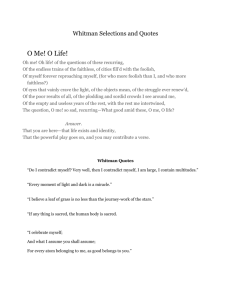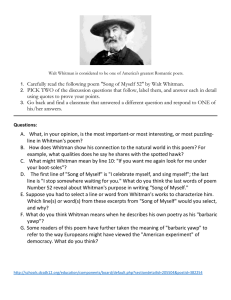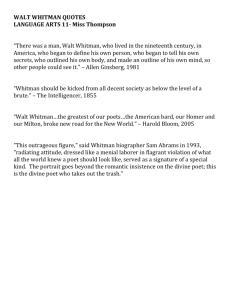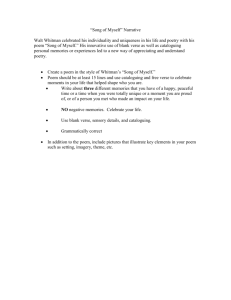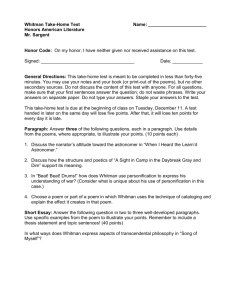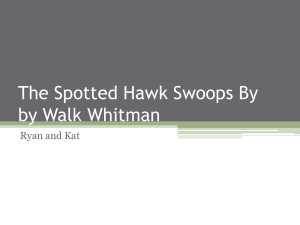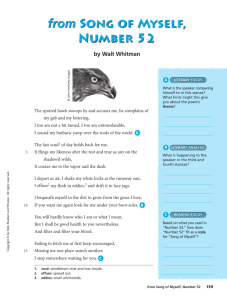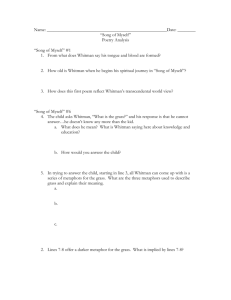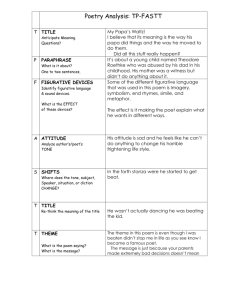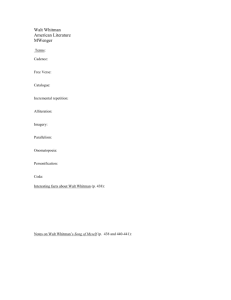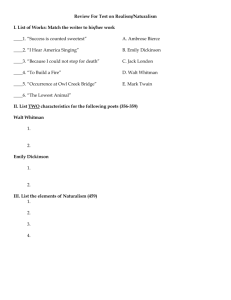Walt Whitman Poetry Worksheet: Analysis & Questions
advertisement
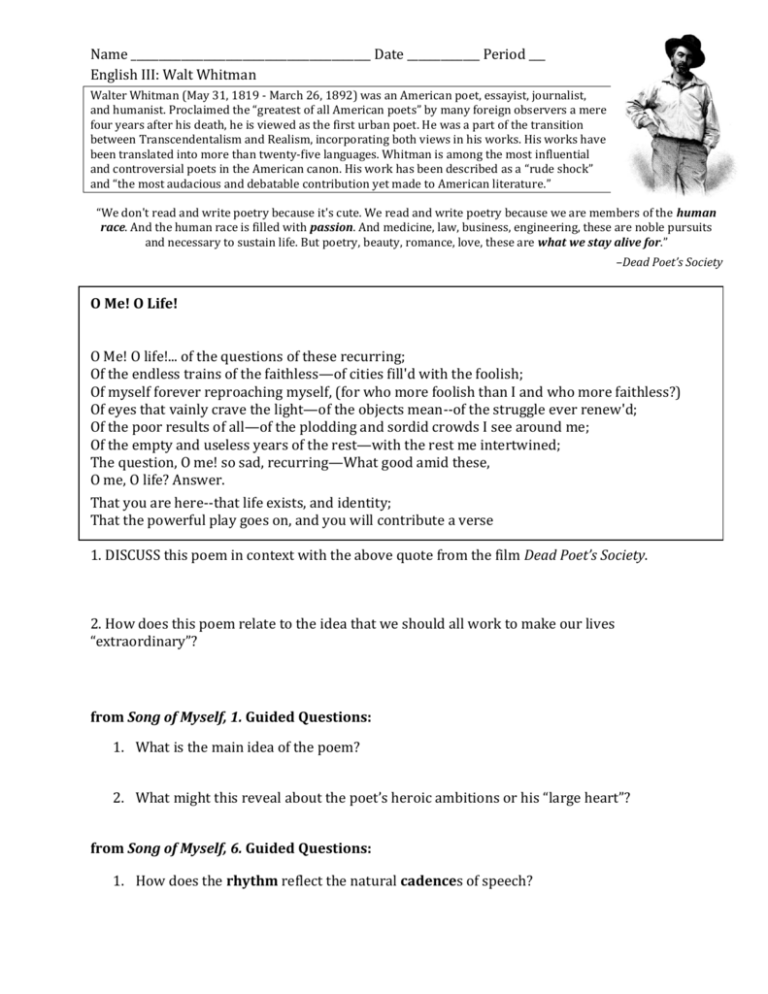
Name ___________________________________________ Date _____________ Period ___ English III: Walt Whitman Walter Whitman (May 31, 1819 - March 26, 1892) was an American poet, essayist, journalist, and humanist. Proclaimed the “greatest of all American poets” by many foreign observers a mere four years after his death, he is viewed as the first urban poet. He was a part of the transition between Transcendentalism and Realism, incorporating both views in his works. His works have been translated into more than twenty-five languages. Whitman is among the most influential and controversial poets in the American canon. His work has been described as a “rude shock” and “the most audacious and debatable contribution yet made to American literature.” “We don't read and write poetry because it's cute. We read and write poetry because we are members of the human race. And the human race is filled with passion. And medicine, law, business, engineering, these are noble pursuits and necessary to sustain life. But poetry, beauty, romance, love, these are what we stay alive for.” –Dead Poet’s Society O Me! O Life! O Me! O life!... of the questions of these recurring; Of the endless trains of the faithless—of cities fill'd with the foolish; Of myself forever reproaching myself, (for who more foolish than I and who more faithless?) Of eyes that vainly crave the light—of the objects mean--of the struggle ever renew'd; Of the poor results of all—of the plodding and sordid crowds I see around me; Of the empty and useless years of the rest—with the rest me intertwined; The question, O me! so sad, recurring—What good amid these, O me, O life? Answer. That you are here--that life exists, and identity; That the powerful play goes on, and you will contribute a verse 1. DISCUSS this poem in context with the above quote from the film Dead Poet’s Society. 2. How does this poem relate to the idea that we should all work to make our lives “extraordinary”? from Song of Myself, 1. Guided Questions: 1. What is the main idea of the poem? 2. What might this reveal about the poet’s heroic ambitions or his “large heart”? from Song of Myself, 6. Guided Questions: 1. How does the rhythm reflect the natural cadences of speech? 2. What attitude toward the cycle of life is suggested by Whitman’s use of the words “onward,” “outward,” and “luckier”? Explain. from Song of Myself, 14. Guided Questions: 1. What aspect of life does the poet celebrate in this section of the poem? from Song of Myself, 17. Guided Questions: 1. In what ways does Whitman’s use of parallel structures in this section emphasize the ideas that he is expressing? from Song of Myself, 52. Guided Questions 1. In line 1, the cry of a hawk is compared to a human complaint. In the second line, the speaker compares himself to the hawk. What is the point of these metaphors? How is the speaker, as a man and as a poet, also untamed and “untranslatable”? 2. A yawp is a “rough, vigorous language” or a “sharp cry.” How does Whitman’s use of free verse in lines 2-3 emphasize his ideas? 3. What is the effect of Whitman’s unusual use of verbs? 4. What specific passages from #52 link thematically to other excerpts from “Song of Myself”? “I Hear America Singing” 1. Why does the speaker say that each person’s singing should be “blithe and strong”? 2. Who does Whitman feel is truly building America? 3. Elliptical constructions are sentences with words left out. What might “The day what belongs to the day” mean? 4. The whole poem can be viewed as a catalog. What is Whitman celebrating with his list?
